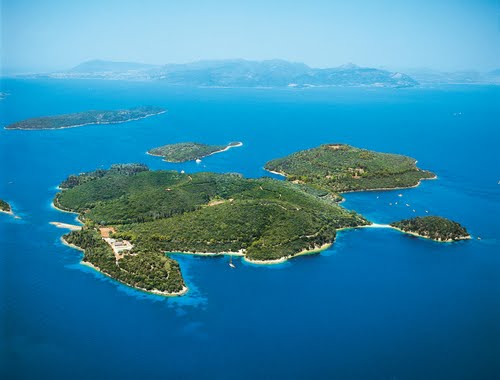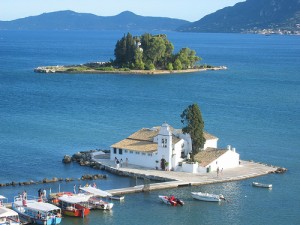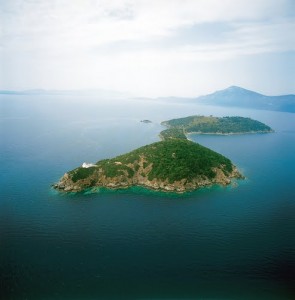The mayor of Lithuania’s capital city has suggested that struggling Greece should sell the country a private island to use as a resort – but is it even possible?
A paradise island on Greece’s sunny Mediterranean shores sounds to many people like the perfect vacation getaway – and Arturas Zuokas, the mayor of Lithuania’s capital city of Vilnius, would no doubt agree. The controversial politician suggested in a public statement that local businesses could easily raise the seven million or so euros required to gain the rights to an island, which would feature a hotel, spa, museums, and also function as the residence of the Lithuanian ambassador to Greece.
In his statement, he said that, “After the island’s registration by Lithuanian government, it wouldn’t just be an exclusive place for rest in the Mediterranean for our citizens, but also a great global advert for Lithuania.” The prospective island already has a name: Dausuva, taken from the century-old work of a Lithuanian intellectual, Kazys Pakstas. Meaning “green sprout”, the name was originally intended for a semi-autonomous state where his countrymen could flee should Lithuania be taken over in war. Greece was never on his list of havens, however, which did include areas in Quebec, Brazil, and even Madagascar.
Political foes of the mayor have dismissed his idea as a transparent attention-seeking trick, particularly given that the city of Vilnius is itself deeply mired in debt. Zuokas has a history of trying to make international headlines; most famously, in August of this year he had a tank drive over an illegally parked car on a city street, gaining him the satirical Ig Nobel Peace Prize for “demonstrating that the problem of illegally parked luxury cars can be solved by running over them with a tank.” Regardless, however unlikely it would be for Lithuania to act on his suggestion, it poses an interesting question – how difficult is it for a foreigner to acquire an island in Greece?
On the internet, it’s easy to find websites offering tantalizing advertisements for beautiful Greek islands; green mountains rising from the Ionian Sea, a stone’s throw from the Onassis family’s celebrated Skorpios Island; or sun-drenched isles along the southern coast, brown specks against the deep blue of the Mediterranean. Ranging in price from a few million euros to over 100 million euros, they can appear to be a readily available commodity for wealthy Northern European and North American investors, particularly given that Greece does not, unlike many other countries, generally prohibit the foreign ownership of land.
However, according to island expert Farhad Vladi, who founded the world’s largest island brokerage in 1971, Vladi Private Islands, the prospects for a non-Greek national to buy a Skorpios-style retreat of their own are slim, if not outright impossible. While Greece doesn’t actually ban the foreign purchase of its islands, there are numerous national security-related restrictions on the sale of coast or border properties to foreigners, and even if those do not apply, buyers must still navigate Greece’s notoriously complex and time-consuming bureaucracy.
“For a non-Greek to purchase an island in Greece is not outright forbidden, but I am not aware of a single successful case,” said Vladi. “There are 32 separate applications which must be approved to allow the purchase – most foreign buyers do not make it very far into the process , and we are up-front with our clients about this.” He added that he himself has firsthand experience with helping non-Greek clients try to purchase islands in the country, and he learned quickly that unless the purchaser was in possession of a Greek passport, it was a near-futile task. “The furthest I know of an international buyer making it in the process was to perhaps the 16th application. It was impressive that he made it even that far!” Vladi also said that he had found that no foreign buyer, according to Greece’s public records, has been able to purchase an island in Greece since the end of the Second World War.
Given the difficulty involved – and that countries are highly unlikely to give up sovereignty over any land to another state – it seems that even if Zuokas was able to raise the seven million euros he proposed, his plans for a sovereign Lithuanian tourist resort would be speedily quashed by the Greek government. Even while suffering under catastrophic debt, and undergoing a fire-sale of many public assets, the country reacted to the recent suggestion by European politicians that they sell some of their islands with a massive public outcry. Even in this time of crisis, it seems that owning a gorgeous isle in Greece will remain, at least for non-citizens, the Holy Grail of private islands.
Read more about this story: Digital Journal





